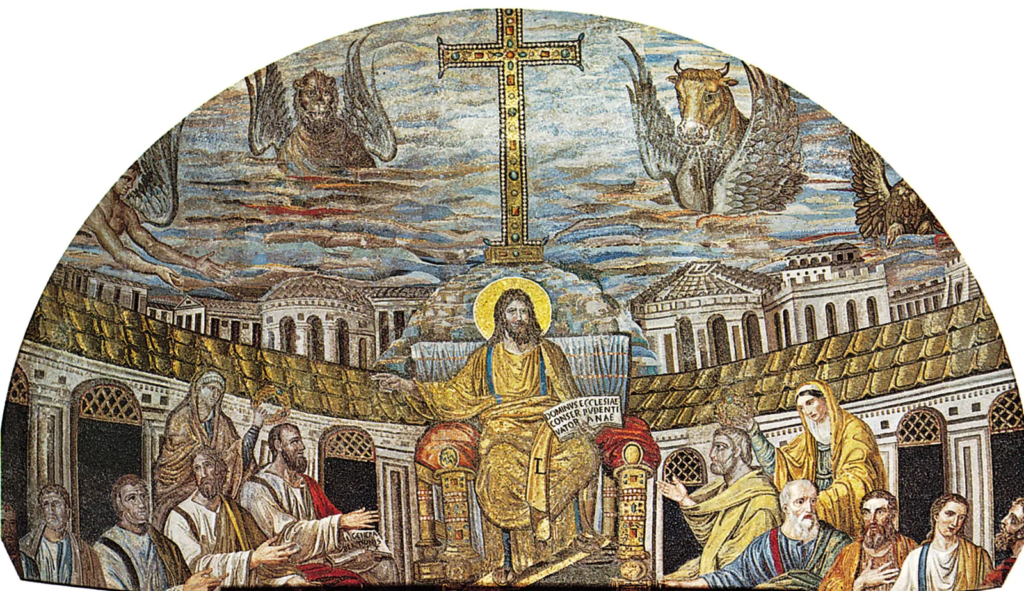In a region simmering with religious and political tensions, a movement emerged that would forever change the course of history. Christianity, which began as a sect within Judaism, grew to become the world’s largest religion, its message resonating across centuries and continents. Let’s explore the remarkable beginnings of this global faith.

The Setting: Roman-Occupied Judea
Christianity’s story unfolds in 1st-century Judea, a Roman province in the eastern Mediterranean. Judaism, the dominant religion, was centered on belief in one God and a rich tradition of prophets and laws. Yet, Roman rule brought its own gods and philosophies, creating a complex tapestry of beliefs and practices in the region.
Jesus of Nazareth: The Spark
At the heart of Christianity is Jesus of Nazareth, a Jewish teacher and healer. While his life is primarily documented in the Christian New Testament, his existence as a historical figure is widely accepted. Jesus preached about the coming of the “Kingdom of God,” a realm of justice and peace. His emphasis on love, forgiveness, and personal ethics drew both followers and opposition.
Jesus gathered a close-knit group of disciples, including Peter, James, and John. They would become witnesses to his teachings, miracles (according to the Gospels), and ultimately, his arrest and crucifixion by Roman authorities around 30-33 AD.
The Resurrection and the Birth of a Movement

The defining event in Christianity is the belief in Jesus’ resurrection from the dead. His disciples, initially scattered and disheartened, proclaimed this resurrection as a victory over death and the ultimate sign of Jesus’ divine nature. This belief fueled their mission to spread his message.
The early followers of Jesus were still very much a part of Judaism. However, a critical shift occurred with the conversion of Paul of Tarsus, a former persecutor of Christians. Paul became a fervent missionary for the new faith and argued that salvation comes through faith in Jesus as the Messiah (Christ), not solely through adherence to Jewish law. This opened the door for Christianity to spread far beyond its Jewish roots.
The Spread of Christianity: Triumphs and Tribulations
Early Christians were often viewed with suspicion by Roman authorities. Their refusal to worship the emperor and state gods branded them as subversive. Persecutions flared, sometimes with brutal intensity. Despite the danger, Christianity’s message of hope, love, and equality resonated deeply with many throughout the empire.
Communities of believers sprang up in cities across the Roman world. Missionaries like Paul traveled extensively, establishing churches and spreading the teachings of Jesus. As Christianity grew, it had to grapple with defining its core beliefs. Questions arose about the nature of Jesus, the relationship between faith and good works, and the structure of the growing church.
Transformation of Empire

Christianity’s relationship with the Roman Empire was a tumultuous one. Persecutions were severe at times, yet the faith continued to spread. A turning point came with the conversion of Emperor Constantine in the 4th century. Christianity gained official recognition, and over time, became the dominant religion of the empire.
The Legacy of Early Christianity
These formative centuries laid the foundation for Christianity’s enduring legacy. Key thinkers shaped Christian theology. The New Testament scriptures chronicled the life of Jesus, early church history, and theological reflections. This early period, with its struggles and triumphs, continues to inform the practices, beliefs, and debates within Christianity to this day.
The origins of Christianity are a rich and complex subject. To delve deeper, consider:
- Reading the Gospels (Matthew, Mark, Luke, John) in the New Testament
- Learning about the life and letters of Paul
- Exploring scholarly works on early Christianity
Through examining its roots, we gain a better understanding of this influential faith that has touched countless lives throughout history.
Keep visiting The Ganga Times for such beautiful articles. Follow us on Facebook, Twitter, Instagram, and Koo for regular updates.
